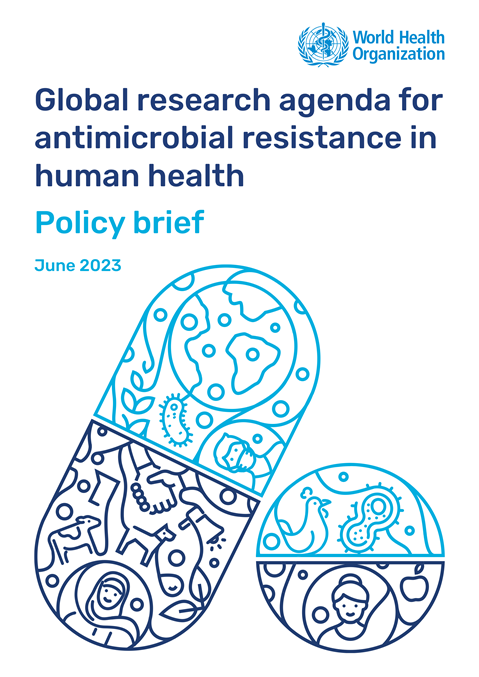Global research agenda for antimicrobial resistance in human health
Policy brief

Overview
The global research agenda for antimicrobial resistance in human health prioritizes 40 research topics for evidence generation to inform policy by 2030. It aims to guide policy-makers, researchers, funders, implementing partners, industry and civil society in generating new evidence to inform antimicrobial resistance policies and interventions as part of efforts to address antimicrobial resistance, especially in low-and-middle-income countries.
The research agenda is global in scope and focuses on antimicrobial resistance in the human health sector, especially infections caused by the WHO bacterial priority pathogens and WHO fungal priority pathogens with critical importance for antimicrobial resistance (such as Candida auris, Aspergillus fumigatus and Cryptococcus neoformans), and drug-resistant Mycobacterium tuberculosis.
For the full report, see the Global AMR Research Agenda in human health report, which details the process used to identify priority research questions.
